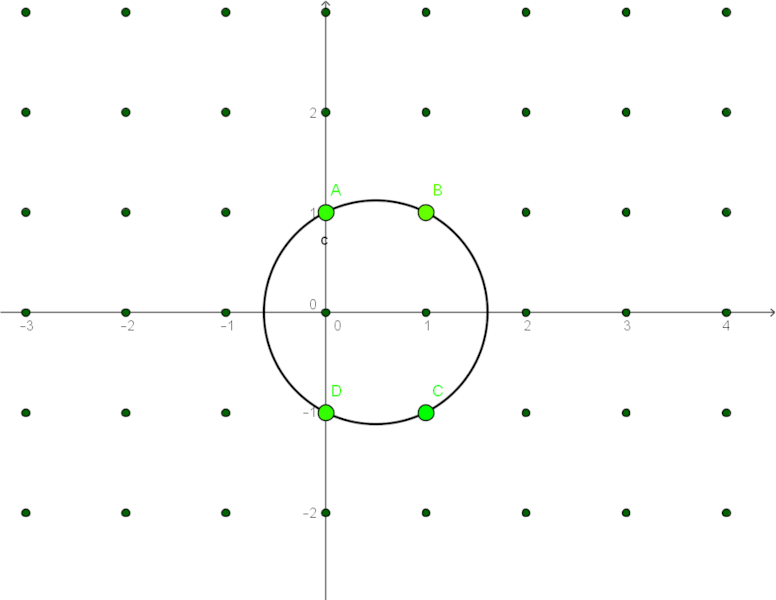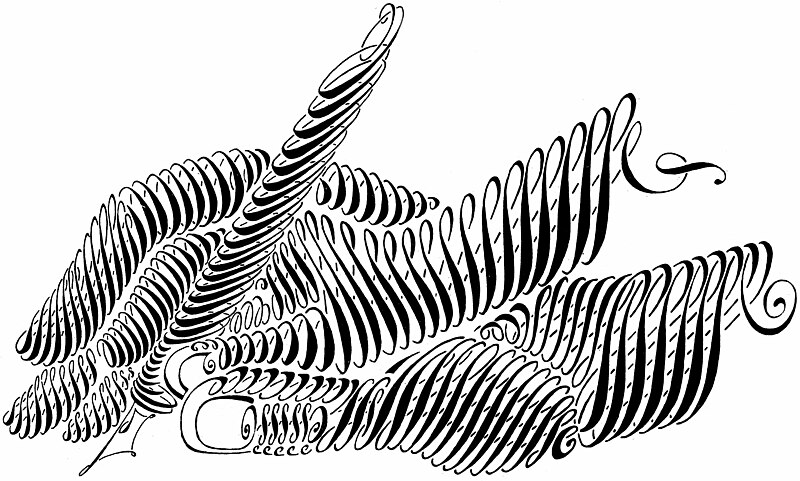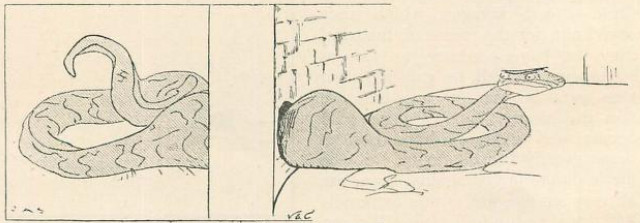
For any positive integer n, there exists a circle that passes through exactly n lattice points in the Euclidean plane.
This was first proven by Polish mathematician Andrzej Schinzel in 1958. It’s known as Schinzel’s theorem.

For any positive integer n, there exists a circle that passes through exactly n lattice points in the Euclidean plane.
This was first proven by Polish mathematician Andrzej Schinzel in 1958. It’s known as Schinzel’s theorem.
A puzzle by S. Dvoryaninov from the July-August 1994 issue of Quantum:
A very large military band marched in square formation on a parade ground, then regrouped into a rectangle so that the number of rows increased by 5. How many musicians were in the band?
The 2024 GCHQ Christmas Challenge is now live. Devised by Government Communications Headquarters, the British intelligence agency, this year’s puzzles encourage children aged 11-18 to think laterally and work as a team, testing skills including codebreaking, mathematics, and lateral thinking. “This year for the first time there are three additional elements hidden within the card for those who want to take on an extra challenge.”
The agency has included puzzles in its Christmas cards to global national security heads since 2015. Director Anne Keast-Butler said, “The puzzles are aimed at teenagers and young people, but everyone is encouraged to give them a try — they might surprise you.”
Henry George Liddell and Robert Scott’s Intermediate Greek-English Lexicon of 1851 contains a sobering entry:
ραφανιδοω: to thrust a radish up the fundament, a punishment of adulterers in Athens
In recalling this to friends at Christmas in 1972, historian John Julius Norwich wrote, “I’m sure it must once have been familiar to every schoolboy, and now that the classics are less popular than they used to be I should hate it to be forgotten.”
Freezing in the Canadian arctic in 1821, John Franklin noted some telling effects of fatigue in his companions:
I observed, that in proportion as our strength decayed, our minds exhibited symptoms of weakness, evinced by a kind of unreasonable pettishness with each other. Each of us thought the other weaker in intellect than himself, and more in need of advice and assistance. So trifling a circumstance as a change of place, recommended by one as being warmer and more comfortable, and refused by the other from a dread of motion, frequently called forth fretful expressions, which were no sooner uttered than atoned for, to be repeated, perhaps, in the course of a few minutes. The same thing often occurred when we endeavoured to assist each other in carrying wood to the fire; none of us were willing to receive assistance, although the task was disproportioned to our strength.
From Narrative of a Journey to the Shores of the Polar Sea, in the Years 1819-20-21-22, 1823.
Fleeing a rainstorm in 1710, Joseph Addison took shelter at an unfamiliar house. “As I sat in the porch, I heard the voices of two or three persons, who seemed very earnest in discourse. My curiosity was raised when I heard the names of Alexander the Great and Artaxerxes; and as their talk seemed to run on ancient heroes, I concluded there could not be any secret in it; for which reason I thought I might very fairly listen to what they said.”
After several parallels between great men, which appeared to me altogether groundless and chimerical, I was surprized to hear one say, that he valued the Black Prince more than the duke of Vendosme. How the duke of Vendosme should become a rival of the Black Prince’s, I could not conceive: and was more startled when I heard a second affirm with great vehemence, that if the emperor of Germany was not going off, he should like him better than either of them. He added, That though the season was so changeable, the duke of Marlborough was in blooming beauty. I was wondering to myself from whence they had received this odd intelligence, especially when I heard them mention the names of several other great generals, as the prince of Hesse, and the king of Sweden, who, they said, were both running away. To which they added, what I entirely agreed with them in, that the crown of France was very weak, but that the mareschal Villars still kept his colours. At last one of them told the company, if they would go along with him, he would shew them a chimney-sweeper and a painted lady in the same bed, which he was sure would very much please them.
What explains this strange conversation?

chirurgic
adj. manual; relating to work done by the hand
armillary
adj. consisting of hoops or rings
operosity
n. laboriousness, painstaking endeavour; elaborateness
idoneous
adj. appropriate; fit; suitable; apt
From Hungarian typographer Peter Virágvölgyi, a beautiful instance of “meta-calligraphy.”

Two “tricky” animal traps, described in the Strand, July 1898:
Attracted by bait placed on a tree limb, a bear finds its way blocked by a hanging stone and pushes it aside with its paw. “But, alas! the bear has no knowledge of mechanics, and suffers in consequence, for the weight swings back and strikes him heavily.” Angered, the bear strikes the stone a harder blow, and the contest escalates until he’s knocked off the limb.
Below, a python can allegedly be caught by boring a 6-inch hole in the base of a wall and tying up a pig on either side. “The python comes, sees the first pig, and swallows it; then noticing the through the hole that there is another pig on the other side, puts its head through and swallows that also.” Now it’s trapped, unable to advance or retreat.
The author suggests that both of these techniques are used by villagers in India, but doesn’t say where.
(A. Sarathkumar Ghosh, “Tricky Traps,” Strand 16:91 [July 1898], 27-32.)

Thomas Deininger makes assemblages of trash that take on new meaning when viewed from a particular angle — offering a new perspective on environmental degradation.
Edmund Clerihew Bentley invented the clerihew, a distinctive biographical poem in four lines:
Sir Christopher Wren
Said, “I am going to dine with some men.
If anyone calls
Say I am designing St Paul’s.”
For The Complete Clerihews of E. Clerihew Bentley, Bentley compiled an “Index of Psychology, Mentality and Other Things Frequently Noted in Connection With Genius,” so that his readers might explore particular personality traits in the people he wrote about. To the poem above he assigned the following entries:
Atrocity
Bankruptcy, moral
Conduct, disingenuous
Domestic servants, dishonesty among, encouragement of
Escutcheon, blot on, action involving
Fact, cynical perversion of
Guile
Hypocrisy, calculated
Integrity, low standard of
Jesuitry
Knavery
Lie, bouncing circulation of
Machiavelli, unholy precepts of, tendency to act upon
Noblesse Oblige, disregard of apophthegm
Openness, want of
Principle, lack of
Quickening, spiritual, need of
Restoration, lax morality of, readiness to fall in with
Satanism, revolting display of
Turpitude
Untruth, plausible, ability to frame
Veracity, departure from
World, the next, neglect of prospects in
Y.M.C.A., unfitness for
Zion, outcast from